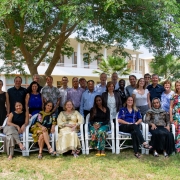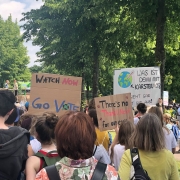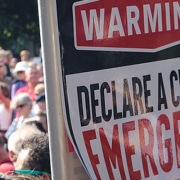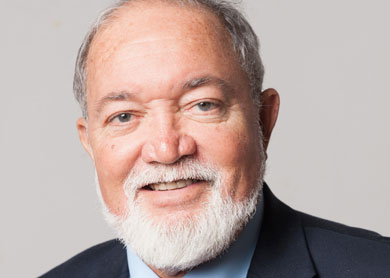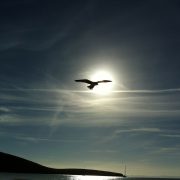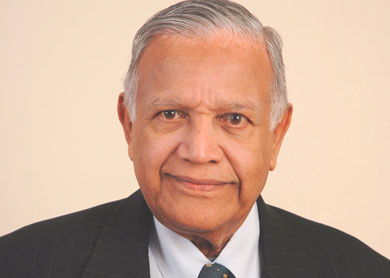Media Statement: World Future Council condemns acts of aggression and calls for restoration of peace and international law
MEDIA CONTACT
Alyn Ware
Councillor, World Future Council
Co-Chair, World Future Council, Peace and Disarmament Commission
alyn@pnnd.org
Ph: +420 773 638 867
About the World Future Council
The World Future Council (WFC) works to pass on a healthy and sustainable planet with just and peaceful societies to our children and grandchildren. To achieve this, we focus on identifying, developing, highlighting, and spreading effective, future-just solutions for current challenges humanity is facing, and promote their implementation worldwide. The Council consists of 50 eminent global change-makers from governments, parliaments, civil societies, academia, the arts, and the business world. Jakob von Uexkull, the Founder of the Alternative Nobel Prize, launched the World Future Council in 2007. We are an independent, non-profit organisation under German law and finance our activities with institutional partnerships and donations.
A Global Call for our Right to a Healthy Environment
The right to a healthy environment is constitutionally protected in over 100 countries. Another 62 countries refer in their constitutions to a healthy environment, but do not make it a right.
Press Release: Securing a World of Climate Resilience, Prosperity and Peace. World leaders identify solutions and call for immediate action
World leaders identify solutions and call for immediate action
Hamburg / Cairo, 16.9.2019.
Fridays For Future: Climate strike in Hamburg
My name is Oona. I am 23, I am French and I study politics. I joined the World Future Council in May 2019 as an intern for the Future Policy Award 2019: Empowering Youth. A few days ago, I participated in the “Fridays For Future” march in Hamburg.
Environment And Climate Change Emergency: Turning Words Into Action
On the eve of the biggest global “Fridays for Future” youth strike for climate, the World Future Council offers its strong support to the dedicated young people holding leaders accountable for their climate commitments. If we are to meet the 1.5°C target of the Paris agreement bold action needs to happen now.
World Future Council endorses “Fridays for Future” movement
On the eve of the biggest global “Fridays for Future” youth strike for climate, the World Future Council offers its strong support to the dedicated young people holding leaders accountable for their climate commitments. If we are to meet the 1.5°C target of the Paris agreement bold action needs to happen now.
World Future Council mourns death of founding member and Honorary Councillor Sir James R. Mancham
The World Future Council is deeply saddened by the loss of founding member and Honorary Councillor, Sir James R. Mancham, who passed away on January 8, 2017, aged 77. Read more
The best way to honour Judge Weeramantry is by learning from and using his legacy
With the passing of Judge C.G. Weeramantry on 5 January the peace, disarmament and sustainability movements have lost a monumental figure. Judge Weeramantry dedicated his life to strengthening and expanding the rule of international law and demonstrated how the rule of law can be used to address critical global challenges such as the continued threat of nuclear weapons, the protection of human rights and the protection of the environment.
In addition to being one of the brightest legal minds on these issues, he was a tireless activist. Nuclear weapons were always a particular concern of his. As we face a future still marked by the nuclear threat, his wisdom and activism will be sorely missed. Fortunately, in the five decades spanning his career he has produced some of the most pioneering, convincing and eloquent analysis and arguments on the need to eliminate nuclear weapons.
We would do well to revisit some of Judge Weeramantry’s treatises and learn from them as we continue to make the case for a world free of nuclear weapons. These include:
As long as nuclear weapons exist, Judge Weeramantry’s unique insights and arguments remain powerful and pertinent. Using the legacy he has left us to achieve a world free of nuclear weapons would be the greatest tribute we can pay him.
World Future Council mourns death of founding member and Honorary Councillor Judge Weeramantry
The World Future Council is deeply saddened by the loss of founding member and Honorary Councillor, Judge C.G. Weeramantry who passed away in Colombo, Sri Lanka on 5 January 2017.
Judge Weeramantry was a Judge of the International Court of Justice (ICJ) from 1991 to 2000, serving as its Vice-President from 1997 to 2000 and a Judge of the Supreme Court of Sri Lanka from 1967 to 1972.
During his time as an ICJ judge, Weeramantry contributed to several landmark cases before the Court. These included a case on the illegality of the use and threat to use of nuclear weapons where he shared remarkable and poignant observations, and the case concerning the Gabcikovo-Nagymaros project which contributed to the furtherance of international sustainable development law.
In the course of his professional career of over five decades as lawyer, legal educator, domestic judge, international judge, author and lecturer, Judge Weeramantry played a leading role in several developing areas of the law. These included the illegality of nuclear weapons, sustainable development, rights of future generations, exploring the interface areas between law and religion and promoting cross cultural understanding. He was also a passionate advocate of peace education which he believed should include teaching principles of international law at an early age.
He has written over twenty books, most of them extremely influential and translated into many languages, and lectured extensively on these topics in over forty countries. His book, ‘Nuclear Weapons and Scientific Responsibility’ pioneered the concept of ethics in science, challenged the notion that science is neutral, and introduced the idea of a ‘Hippocratic oath’ for scientists. His book ‘Tread Lightly on the Earth’ offers a pronounced insight and analysis of the concerns of the world’s principal religions with the preservation and nurturing of the natural environment.
After stepping down from the ICJ, Weeramantry took up the position of President of the International Association of Lawyers Against Nuclear Arms, and continued advancing the application of international law for the benefit of peace and humanity in his new position. This included drafting, and presenting to the UN Security Council a seminal statement on the illegality of the preventive use of force, endorsed by over 200 prominent judges, legal scholars and lawyers from around the world. As IALANA President he also penned an influential public statement, in the wake of the Fukushima disaster, on the application of future justice principles to nuclear energy – in order to highlight its illegality and stupidity.
The Judge was founding Chair of the Centre for International Sustainable Development Law’s International Commission, and then, for 16 years, Patron of the Centre, which is based at McGill University in Montreal, Cambridge University, the University of Nairobi, and the University of Chile.
Weeramantry also founded the Weeramantry International Centre for Peace Education and Research which produced a vast corpus of research and writing based on Weeramantry’s legal knowledge and philosophy for humanity.
Judge Weeramantry received a number of prestigious awards including the Sri Lankabhimanya (highest National Honour of Sri Lanka), Right Livelihood Award (‘Alternative Nobel Peace Prize’) and the UNESCO Peace Education Prize, which he received in recognition of his commitment and concrete undertakings in support of the concept and culture of peace through his career.
With this letter our heartfelt condolences go out to his family. Judge C.G. Weeramantry will be missed as a friend as well as a moral authority.
You need to load content from reCAPTCHA to submit the form. Please note that doing so will share data with third-party providers.
More InformationYou are currently viewing a placeholder content from amChart. To access the actual content, click the button below. Please note that doing so will share data with third-party providers.
More Information
